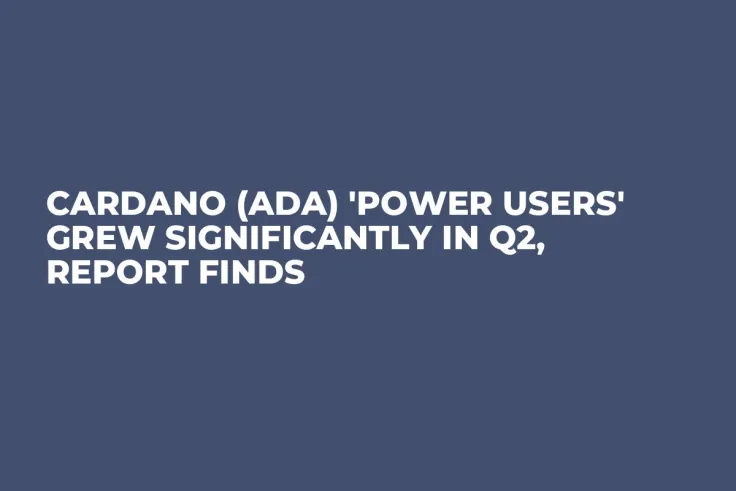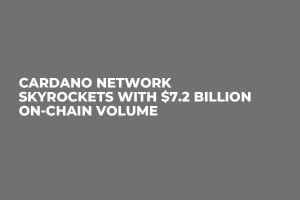
Disclaimer: The opinions expressed by our writers are their own and do not represent the views of U.Today. The financial and market information provided on U.Today is intended for informational purposes only. U.Today is not liable for any financial losses incurred while trading cryptocurrencies. Conduct your own research by contacting financial experts before making any investment decisions. We believe that all content is accurate as of the date of publication, but certain offers mentioned may no longer be available.
The Cardano network saw a notable increase in its "power users" in Q2, 2024, Messari's recent report, "State of Cardano Q2 2024," indicated.
The ratio of transactions to active addresses (txs/DAAs) climbed 8.4% QoQ to 1.62, indicating an increase in "power users" of Cardano.
However, most financial, network and ecosystem indicators for Cardano fell in the second quarter of 2024. Cardano's average daily transactions (txs) plummeted 27.5% from the previous quarter to 51,400, while average daily active addresses (DAAs) fell 33.2% to 31,800.
However, Cardano's average transaction fee in USD fell 23.1% QoQ, from $0.21 to $0.16, while the average transaction fee (ADA) fell only 0.6% QoQ, to 0.34.
Despite these declines, Cardano's ecosystem expanded and matured in Q2. The USDM and MyUSD stablecoins emerged with market capitalization growth of 2,557.6% and 694.8%, respectively.
USDM's market capitalization climbed 2,557.6% QoQ to $3.2 million since its inception on March 16, while MyUSD's market capitalization increased 694.8% QoQ to $2.1 million.
Many protocols introduced V2 versions, including SundaeSwap, which outperformed with 16.3% QoQ growth in TVL (USD) to $12.7 million.
Chang network upgrade approaching
Cardano announced the Chang hard fork in April, a two-part network upgrade that will enable on-chain governance and achieve the fundamental goal of Cardano's final roadmap phase (Voltaire).
Voltaire takes the remaining steps toward Cardano's self-sustainability through on-chain voting, off-chain mechanisms and institutions like Intersect, a member-driven organization.
In the next quarters, the Cardano community may expect the Chang hard fork, which will introduce on-chain governance. After completion of the Chang hard fork, DReps, SPOs and the Constitutional Committee will govern all areas of the network via an on-chain voting and treasury system based on CIP-1694. This would transfer responsibility from the IOG, Cardano Foundation and EMURGO, which originally held all seven governance (genesis) keys.


 Dan Burgin
Dan Burgin U.Today Editorial Team
U.Today Editorial Team